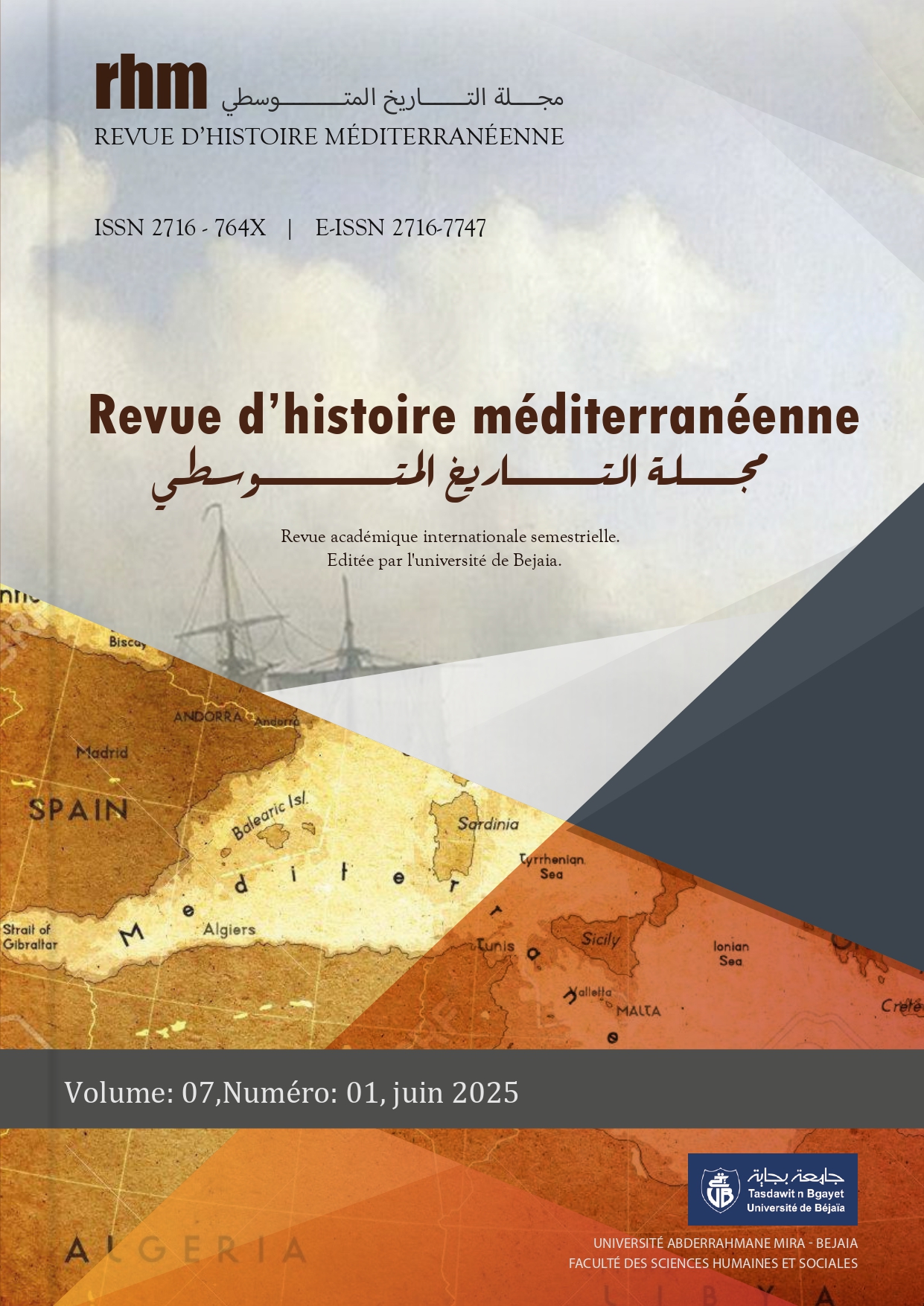أوضاع مسلمي صقلية أثناء رحلتي ابن حوقل (362ه/972م) وابن جبير (581ه/1184م)
The Situation of Muslims in Sicily during the Journeys of Ibn Hawqal (362 AH/972 AD) and Ibn Jubayr (581 AH/1184 AD)
Résumé
لقد وصلنا من الرحالة العرب والمسلمين شهادتان مهمتان عن أوضاع مسلمي صقلية، الأولى من الرحالة الجغرافي ابن حوقل الذي دخلها في (362ه/972م) وكان لايزال المسلمون يحكمون الجزيرة تحت السلالة الكلبية العربية التي عينها الفاطميون مكافأة لوفائهم ومساعدتهم لها في تثبيت أركانها في المغرب الإسلامي، والثانية من الرحالة الأديب ابن جبير الذي دخلها في (581ه/1184م) في عهد الملك غليام الثاني، وكان المسلمون قد خضعوا تحت سيطرة النورمانديين. لقد وجّه ابن حوقل لمسلمي صقلية نقداً لاذعاً واثقاً بقرب نهاية دولتهم؛ حيث وصفهم بأبشع الصفات، منها: عدم التجانس والتجاور بينهم لشدة العصبية القبلية بين اليمنيين والمضريين، وكثرة الصراع والتنافس بين العرب والبربر. كما أنهم اعتادوا على خلع السلاطين والخروج عن طاعتهم، ووصفهم أيضاً بقلة الفطنة والفهم والنظافة؛ وبكثرة النفاق والرياء، والجهل والكسل؛ فمعظم احتياجاتهم الغذائية كانت تُستورد من خارج الجزيرة رغم وفرة مياهها.
أما ابن جبير، فلحسن الحظ أن مقامه في صقلية طال ثلاثة أشهر بسبب الأوضاع الجوية التي منعت إبحاره، ما مكنه من زيارة العديد من الأماكن، ورصد معاناة مَن بقي فيها من المسلمين. فعلى الرغم من عقود الصلح والحماية والتسامح التي عقدها النورمانديون مع المدن الكبرى التي دخلوها، جعلوا مَن استسلم من القرى والأرياف عبيد أرض تحت الإقطاعيين والنبلاء. لاحقاً، أضحى كل المسلمين عبيداً، يعيشون تحت ضغط يخيرهم بين التنصير أو الهجرة شمل حتى الأعيان منهم، ما جعل ابن جبير وهو الشاعر الأديب يبكي لمعاناتهم، ويُكثر الدعاء على الملك في سره وجهره، وما أن خرج من الجزيرة حتى انفجرت الأوضاع بمذابح شنيعة.
يتمحور البحث حول عرض أوضاع مسلمي صقلية أثناء رحلتي ابن حوقل وابن جبير. أما الهدف منه فهو سبر أغوار تاريخ صقلية الإسلامي، واستخلاص العبر منه. وقد اعتمد في ذلك على كل من المنهج التاريخي، المنهج الوصفي والمنهج الاستقرائي.
تتمثل إشكالية البحث في واقع الأوضاع السياسية والاقتصادية والاجتماعية لمسلمي صقلية أثناء رحلة ابن حوقل في (362ه/972م)، وأثناء رحلة بن جبير في (581ه/1184م)؟ وقد اعتمدنا على مادة أساسية في الدراسة تتمثل في مصنف المسالك والممالك، وصورة الأرض لابن حوقل، ومصنف ورحلة ابن جبير لابن جبير الكناني.
وخلصنا بعد الدراسة إلى جملة من النتائج وهي أن مسلمو صقلية كانوا متجانسين أثناء رحلة ابن حوقل، فكانت هناك عصبية قبلية بين اليمنيين والمضريين، وصراعات بين العرب والبربر، كان لكل عنصر منهم قرى وأحياء خاصة، بل لا يجتمعون في مسجد واحد للصلاة، فكان كل واحد يبني مسجده الخاص له ولأسرته، كما كانوا يعارضون سلطانهم، ويرفضون سياساته، وينافقون في تدينهم، ولا يجتهدون في عمل ولا علم مما كان ينذر بسقوط دولتهم منذ دخولهم صقلية. ولم يسن النورمانديون سياسة واحدة مع مسلمي صقلية، فالمدن الكبرى التي حاربتهم أبرموا معها ميثاق صلح يتضمن الحماية والحرية الدينية، أما المناطق التي استسلمت فقد جعلوا سكانها عبيداً بيعوا في أسواق إيطاليا، وجعلوا المزارعين ومزارعهم عبيد أرض، ملكاً للإقطاعيين والنبلاء، لكن ابن جبير وجد كل ما تبقى من المسلمين في صقلية عبيداً تحت سلطة النورمانديين حتى أعيان بلرم. كما لم يستعمل النورمانديون المسلمين في الوظائف والجند لتسامحهم، ولم يحافظوا على الصبغة الإسلامية العربية حباً لها، بل كانوا براغماتيين مستغلين، يهدفون لتثبيت دولتهم الفتية فحسب، ولما وصلوا لهدفهم زاد ضغطهم على المسلمين الذين أصبحوا أمام خيارين أحلاهما مرّ، إما التنصير أو التهجير.











